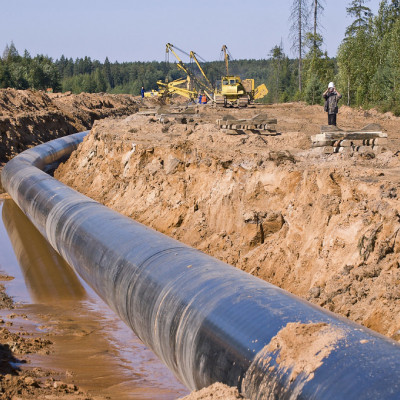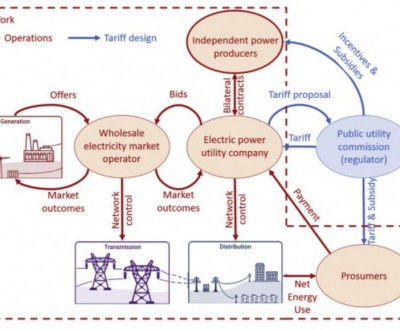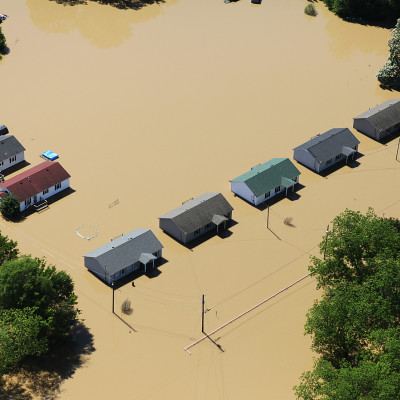August 31, 2021
August 2021 at Policy Integrity
- New Report: Drilling Down on Federal Oil and Gas Leasing
- Will Biden’s New Clean Car Standards Help Put the Brakes on Climate Change?
- Reversing the Flow: Stopping Pipeline Expansion
- Accelerating the Energy Transition With Cutting-edge Analytic Tools
- False Federalism and Covid Policies
- In the News: Estimating Climate Damages
- More from August 2021
-

New Report: Drilling Down on Federal Oil and Gas Leasing
A quarter of U.S. CO2 emissions originates from fossil-fuel extraction on public lands, making federal leasing reform key to addressing climate change. As the Department of Interior reviews its oil and gas leasing program, our new report by Rachel Rothschild and Max Sarinsky offers a path for improving the program—by more accurately predicting emissions impacts, considering the value of delaying leasing decisions, and assessing the distributional impacts of these decisions. We also submitted comments supporting the department’s proposal to reinstitute higher royalties for extraction but encouraged expanded justification. Implementing these recommendations can fuel policies that are economically efficient, climate-friendly, and legally secure.
-

Will Biden’s New Clean Car Standards Help Put the Brakes on Climate Change?
The transportation sector is the largest source of U.S. greenhouse gas emissions, driving 29% of the total. For Bloomberg Law, Richard Revesz examines the dent EPA’s proposed clean car rule could make in transportation emissions. His verdict: the Biden administration’s targeted reductions are less ambitious than Obama’s, but they’re significant for leaving Trump-era negligence in the rear-view mirror, restoring analytical credibility that paves the way for more stringent standards in future years.
-

Reversing the Flow: Stopping Pipeline Expansion
As both emissions and temperatures soar, the growing network of natural gas pipelines becomes increasingly untenable. This means that the Federal Energy Regulatory Commission must adequately consider climate impacts when deciding whether to approve pipelines and related natural-gas infrastructure projects. To do so, it should use the social cost of greenhouse gases, write Sarah Ladin, Iliana Paul, Jason Schwartz, and Max Sarinsky in five sets of comments to the agency this month. The D.C. Circuit’s recent rebuke of FERC’s climate analysis shows that using these metrics isn’t just analytic best practice, but also, as Richard Revesz told Politico’s E&E news, a key step for avoiding legal risks.
-

Accelerating the Energy Transition With Cutting-edge Analytic Tools
Policy decisionmakers need the best analytic tools available to set the most welfare-enhancing policies. In their article forthcoming in the Yale Journal on Regulation, Richard Revesz and Max Sarinsky explain why the social cost of greenhouse gases is one such tool and should play a critical role in all areas of agency policymaking with climate impacts.
Approaching decarbonization from another angle, Burçin Ünel’s new article in The Electricity Journal lays out an agenda for improving energy market modeling for decarbonization policy, recommending expanded datasets and more transparent energy market models to best guide policymakers.
-

False Federalism and Covid Policies
The principles of federalism derived in the environmental context can help inform other aspects of policymaking, including state-level Covid policies. As Richard Revesz discusses in a new piece for The Hill, Ron DeSantis and some other governors are misunderstanding federalism in their pursuit of policies that will likely increase the spread of Covid in their states and elsewhere. Revesz notes that efforts to ban vaccine/mask mandates could have severe effects beyond state lines, and that executive or legislative intervention may be needed to avoid calamitous outcomes.
-

In the News: Estimating Climate Damages
The U.N. Intergovernmental Panel on Climate Change report released this month made a big media splash. Its biggest imprint in the regulatory arena is likely to be a higher value for the social cost of greenhouse gases, a key metric in climate decisionmaking across many agencies, Richard Revesz told Bloomberg Law. This is crucial given the massive damages of climate change—likely $1.7 trillion a year by 2025 and $30 trillion a year by 2075, according to estimates from our recent survey of economists by Peter Howard and Derek Sylvan, which was cited in a new discussion by the World Economic Forum.
-
More from August 2021
- As DOE prepares new energy conservation standards for manufactured housing, we submitted comments urging them to use the social cost of greenhouse gases to analyze emissions impacts.
- In comments to FERC, we encouraged the agency to accept PJM’s proposed changes to the Minimum Offer Price Rule, which recognizes that generation-based externality payment for clean electricity resources can be welfare-enhancing and removes the artificial barrier to market entry for resources that receive payments under state climate policies created by the previous rule.
